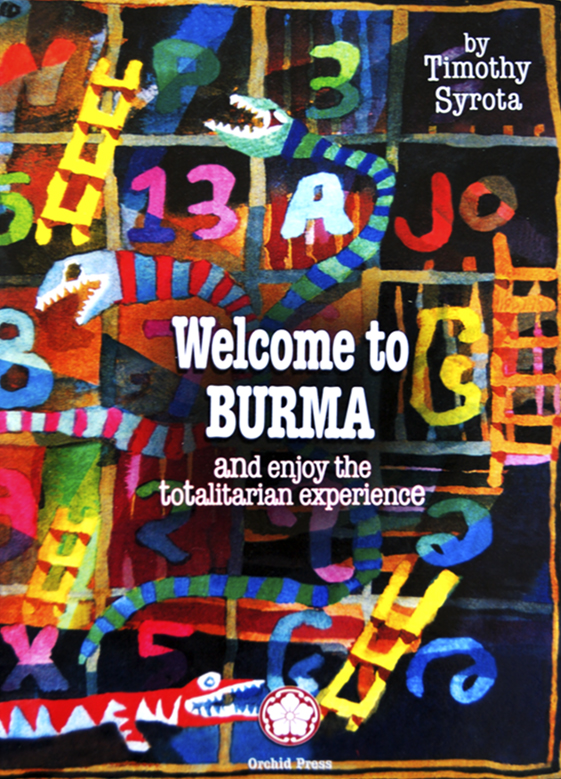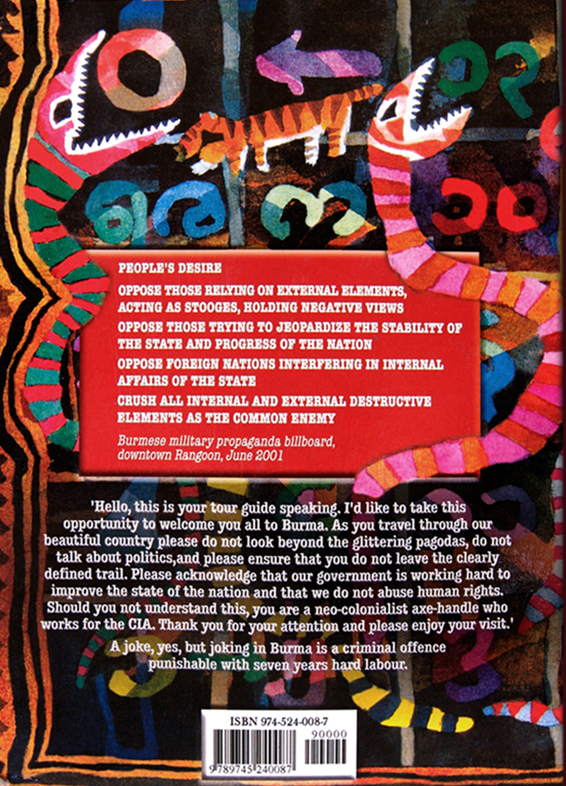Author
WELCOME TO BURMA
Welcome To Burma Author’s introduction.
In 1962 the Burmese military, led by General Ne Win, staged a military coup that rested power from a civilian government led by Prime Minister U Nu. For the first seven years of this regime the longest visa available for entry into Burma was seventy two hours. Visits were restricted to Rangoon. This was part of a policy imposed by General Ne Win intended to physically isolate Burma from the rest of the world. By 1988, the year in which hundreds of thousands of students, monks and democracy activists took to the streets to protest against continuing military rule, visas had been extended to seven days and visitors were allowed to travel to Rangoon, Mandalay, and the ruins of the ancient capital in Bagan.
Over the following decade the availability and duration of visas into Burma reflected a military dilemna. On one hand they wanted to bolster their flailing economy with tourist dollars and international investment. On the other they wanted to conceal the state of the Burmese nation. As such, visas fluctuated between not being available at all to being available for up to four weeks.
In the mid 1990s the military regime decided to launch Visit Myanmar Year in 1996. It was a bid to attract the tourist dollars which were benefitting other developing nations in the South East Asian region.
Visit Myanmar Year began in November 1996 and at the official launch a speech was made by Lieutenant General Khin Nyunt. At the time Lieutenant General Khin Nyunt was Secretary One of the ruling State Law and Order Restoration Council (SLORC). Today he is Secretary One of the State Peace and Development Council (SPDC). He is also the head of Burmese Military Intelligence, the Chairman of the Board of Education and the head of the Burmese Olympic Committee for Sydney 2000. Lieutenant General Khin Nyunt is also the god son of the former military dictator, General Ne Win. In an address concerning tourism, Lieutenant General Khin Nyunt said,
‘Fabrications and biased stories of some foreign news agencies have made false impressions of Myanmar (Burma) on those who have not been here. The main purpose of Visit Myanmar Year 1996 is to enable many tourists to visit Myanmar and see the facts. On their return they will explain the true situation they experienced and all the fabrication will be rebutted.’
I am a tourist who has come to Burma more likely than not because of an interest arising out of its colonial heritage. I know almost nothing of its status as a military dictatorship. I do not know who Daw Aung San Suu Kyi is. When I arrive obtain a one month visa and extend this for a further two months. Approximately 30% of the country is open to tourism.
Lieutenant General Khin Nyunt, what follows is an account of the situation that I have experienced in Burma.

